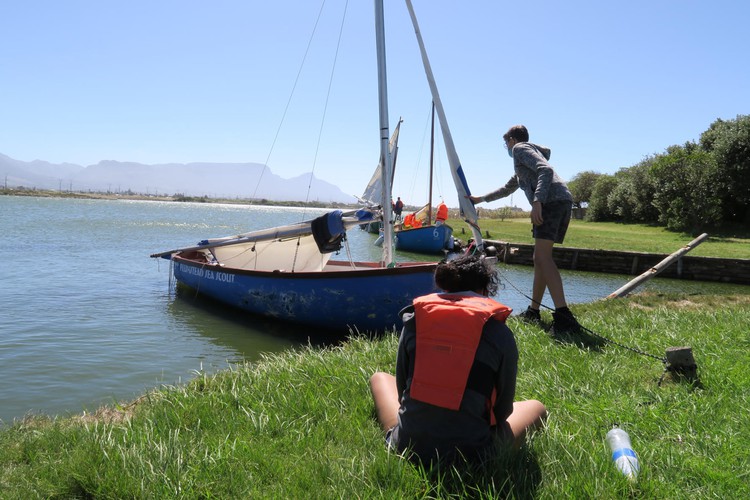Water tests show dangerous levels of bacteria in Zandvlei, Zeekoevlei, and Rietvlei
Months after vleis closed, City makes results public
People enjoying Zandvlei in April before it was closed to the public. Archive photo: Steve Kretzmann
- The City of Cape Town has released the water quality test results from May to August for the city’s three large vleis.
- Zandvlei, Zeekoevlei, and Rietvlei have been closed to the public for months because of pollution.
- The test results show hazardously high levels of E. coli in the water for the past few months.
The City of Cape Town has released its water quality test results from May to August for Zandvlei, Zeekoevlei, and Rietvlei – three major vleis that have been closed to the public for months.
The results show that all three vleis were highly polluted at various sampling points in late August.
For some time, the public has been urging the City to make the test results public and thousands signed a petition demanding to know the extent of the pollution. Sports clubs around the three vleis have been forced to suspend their activities indefinitely.
Water quality test results
The results show the levels of E. coli (a bacteria found in human faeces) taken at specific sampling points every few days. The results are measured in colony-forming units (cfu) of E. coli per 100ml.
The City considers measurements of more than 4,001 cfu/100ml to pose an “unacceptable risk” to public health. The three vleis show E. coli levels far higher than this in the past months.
The City of Cape Town uses this table to assess water quality. All graphs ansd graphics provided by the City
Zandvlei showed seriously high levels of pollution (8.3 million cfu/100ml) at a sampling point at the Northern part of the vlei a few days before the vlei was closed on 25 May.
Sampling points across the vlei during the following weeks varied dramatically but continued to show mostly very high levels. A sampling point opposite the Imperial Yacht Club on 8 July showed 200,000 cfu/100ml.
The latest results taken on 23 August show the most frequently sampled places with 430,000 cfu/100ml and 106,000 cfu/100ml.
Zandvlei sampling points. ZA01 and ZA02S produced results at 430,000 cfu/100ml and 106,000 cfu/100ml respectively.
Zeekoevlei closed on 8 July. But test results show that E. coli levels in the vlei were already above acceptable levels in May.
The latest tests on 16 August show that the levels of pollution remain high. The highest was 74,000 cfu/ml at a sampling point in front of Cape Peninsula Aquatic Club. The lowest, in front of the Zeekoevlei Yacht Club, was 34,000 cfu/100ml.
The City is currently finalising an action plan to combat the pollution in Zeekoevlei.
The City announced the closure of Rietvlei in late June, soon after the pollution levels rose in late May. At this vlei too, E. coli levels have remained high since the closure.
The latest test results taken on 24 August show that E. coli levels at two sampling points in the vlei were 53,000 cfu/100ml (highest) and 23,000 cfu/100ml (lowest).
The water quality test results can be accessed here:
City of Cape Town response
Mayco member for Water and Waste Xanthea Limberg said, “Even when recent water quality data was not public the City was always clear that there was a pollution incident and that water still needed to recover to acceptable levels before the water bodies could be opened.”
Limberg said that “transparency is a key component of the water strategy” and that the City is currently adjusting “existing policies to make data more freely available without compromising communities”.
Support independent journalism
Donate using Payfast

Don't miss out on the latest news
We respect your privacy, and promise we won't spam you.
© 2021 GroundUp. This article is licensed under a Creative Commons Attribution-NoDerivatives 4.0 International License.
You may republish this article, so long as you credit the authors and GroundUp, and do not change the text. Please include a link back to the original article.
We put an invisible pixel in the article so that we can count traffic to republishers. All analytics tools are solely on our servers. We do not give our logs to any third party. Logs are deleted after two weeks. We do not use any IP address identifying information except to count regional traffic. We are solely interested in counting hits, not tracking users. If you republish, please do not delete the invisible pixel.






